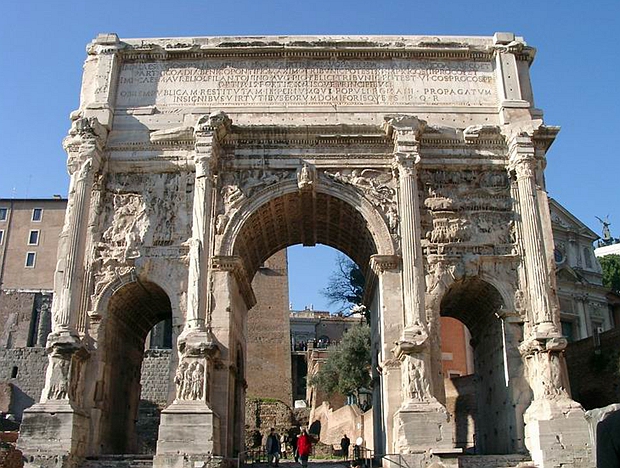Italy poses an unprecedented challenge to EU
- By Sumantra Maitra
 0 Comment(s)
0 Comment(s) Print
Print E-mail China.org.cn, May 26, 2018
E-mail China.org.cn, May 26, 2018

Shock and horror were palpable in Brussels as Italy elected the region's first populist government. Until that moment, the EU's problems had been kept on the periphery. Greece was a small, obscure country in the southeastern corner of a Europe whose center was holding strong even at the time the Greek crisis started. Britain's exit was considered a landfall, as the first time the "ever closer union" was reversed. Hungary, Poland and other central Euro countries were often considered oddities as being conservative and nationalist -- out of character for a union whose future is inexorably joined together. The western states, including founder members Italy, Germany and France, were considered immune to this strain of populism.
Not anymore.
Enter the winners of the recent elections in Italy: two antiestablishment parties that have come together in a coalition to form a new Italian government, and have named Giuseppe Conte, an unknown law professor from Florence, as the potential prime minister. The leader of the hard right League party, Matteo Salvini, and his counterpart from the left-wing 5-Star Movement, Luigi Di Maio, agreed that Conte is the best candidate for Italy's future. Upon confirming their choice, they approached Italian President Sergio Mattarella, who is responsible for guiding the creation of the new government, though he appeared reticent to invite such openly Eurosceptic elements.
The coalition agenda is horrifying Brussels already. It includes billions of euros in middle-class tax cuts, as well as an enormous spending boost for social welfare and poverty. It also includes a complete overhaul of EU-mandated pension rules and immigration and monetary reforms. Most controversially, it includes mass ejection of migrants from Italian shores. The coalition's plans include deporting over half a million migrants who have arrived in Italy over the last two years, especially from Africa via Libya. Alongside Greece, Italy has borne the brunt of migration through the Mediterranean, despite consistent pleas to the other states to share the burden. Italy's prosecutors have even accused local NGOs of orchestrating social engineering on a mass scale. The backlash of this situation has resulted in the win of the populists.
The shock in the market is clearly visible. Italy's borrowing cost surged and the stock market hit a record low. Salvini, the more hawkish leader of the two coalition parties, wrote on Twitter that it would be a fundamental duty of the new Italian government to discard everything that was accepted by the previous government. As Martin Wolf pointed out in Financial Times, Italy isn't Greece. In a sense, while the two nations' problems trace back to the same roots, Italy is seven times larger, and the Italian economy is the fourth largest in the Euro zone, making it nearly impossible for Italy to fail and nearly impossible to save it either.
And therein lies the problem. Of course, Italy's parliament and president need to approve the new government, and the two largest parties are already showing signs of backing down. But the fundamental truth remains that Europe has reached an inflection point. The underlying rationale behind the rise of the far right and populist parties lies in uncharted mass migration which hasn't been properly controlled. That is the single biggest variable, and it is what is breaking the back of the Euro zone.
Consider a scenario where Italy flat-out refuses to share any burden of migration, deporting hundreds of thousands of people to Africa. Italy has the capability and police force to achieve this. Would that action then be barred by the EU? I doubt it. The EU would have to swallow their collective pride and accept it. And that would indeed mean the end of the moral privilege of the European Union. There is no win for the EU, and that prospect scares the officials in Brussels more than anything.
Sumantra Maitra is a columnist with China.org.cn. For more information please visit:
http://www.china.org.cn/opinion/SumantraMaitra.htm
Opinion articles reflect the views of their authors only, not necessarily those of China.org.cn.






Go to Forum >>0 Comment(s)